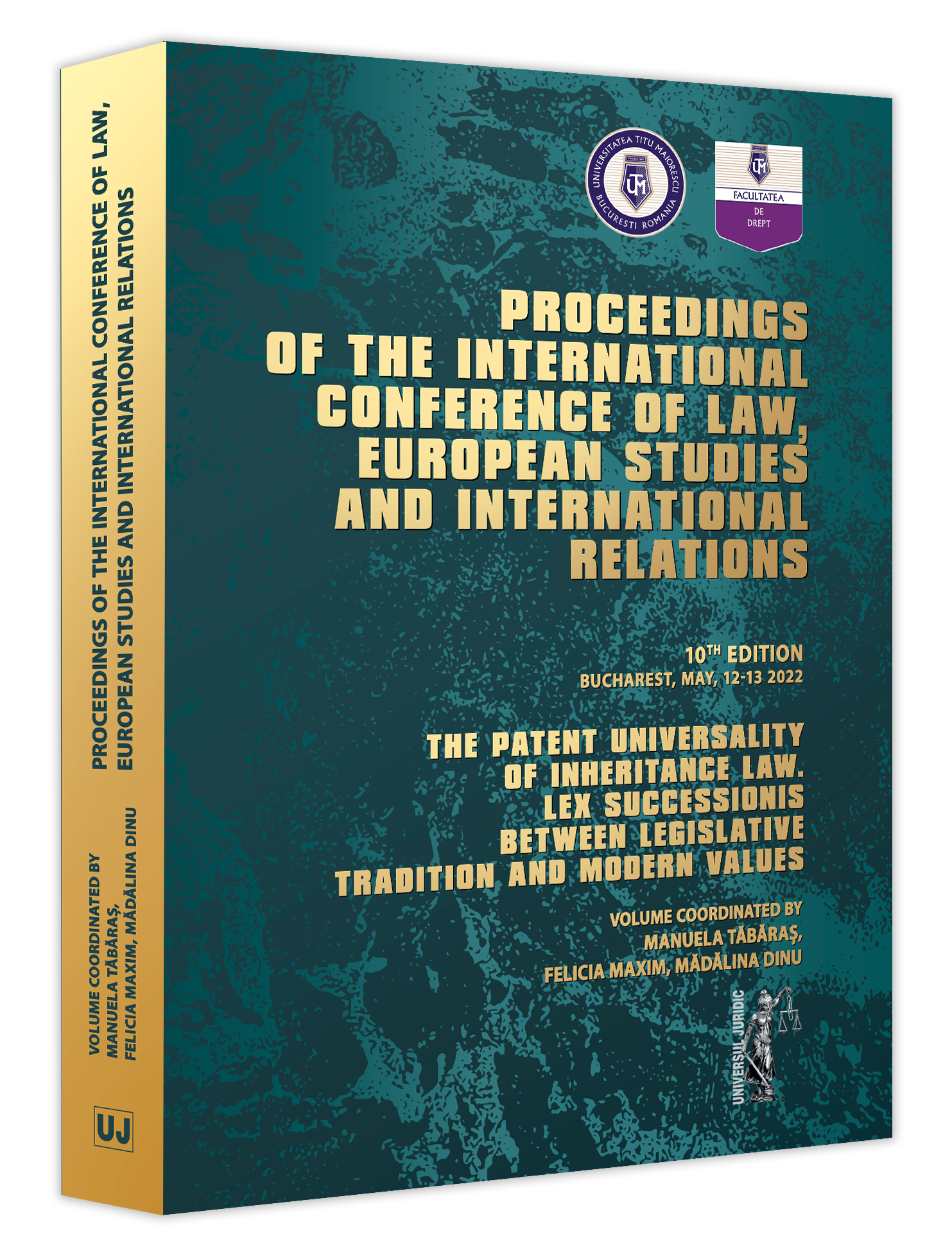
PROCEDURE FOR THE DISBANDING OF A DOCUMENT IN THE EVENT OF CLOSURE ORDERED BY FOLLOWING THE DEATH OF THE SUSPECT OR DEFENDANT
PROCEDURE FOR THE DISBANDING OF A DOCUMENT IN THE EVENT OF CLOSURE ORDERED BY FOLLOWING THE DEATH OF THE SUSPECT OR DEFENDANT
Keywords: seizure of the document; cancellation of the registered; ranking;
The procedure of confiscation or cancellation of documents is a legal operation of a criminal nature that has the role of restoring legality and removing possible harmful situations. Due to the characteristics it has, at first glance it can be said that it represents a legal institution with features exclusively specific to the field of criminal law, but after a closer analysis, it can be seen that it has in its composition elements that have consequences including regarding the civil side. By the procedure established by art. 5491 C. proc. C., in resolving the civil action in the criminal proceedings, the court may proceed to the abolition of a document, in the event that it is the result of committing an act of forgery. 0The amendments made in this field by the legislator are a novelty element, since, unlike the old legislation, where the prosecutor could order the measure of special confiscation, and as regards the abolition of a document, the civil court was seized, currently, the judge of the preliminary chamber is notified for ordering both measures. Even if the death of the suspect or defendant is ascertained, the judicial bodies still have the obligation to take the necessary steps to confiscate or abolish the documents related to possible crimes in order to protect the interests of individuals. The link between that legal institution and the scope of the law of succession is very close, since the application of these provisions prevents the possibility of opening the way to an inheritance from the commission of a criminal act.
More...